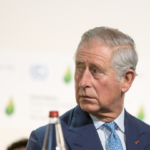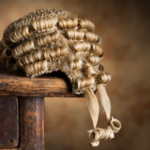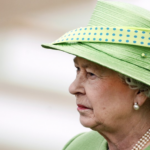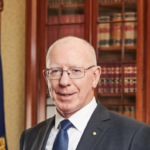Abolish the Monarchy: FISTT’s Lynda-June Coe on Protesting the British Crown
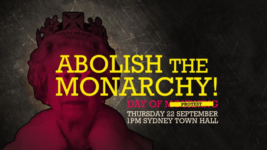
The outpouring of grief over the death of Queen Elizabeth II, along with the saturation media coverage, the closure of parliaments and the establishment of an official day of mourning, have all raised serious questions about the polity that goes by the name Australia.
PM Anthony Albanese took on the top ministerial role in May. In doing so, he pledged to act on reforms that he posits will improve the standing of First Nations communities, along with promising to hold a referendum on completely severing ties with the British royal family in his second term.
However, since the death of Elizabeth II on 8 September, Albanese has proven himself to be quiet the ardent monarchist, which has certainly sullied his stated prioritisation of Aboriginal and Torres Strait Islander affairs.
Indeed, the PM is far from being alone in his reaction. Thousands have publicly mourned a supposedly powerless and foreign head of state, whose subjects desecrated the pre-existing civilisations of this continent to profiteer from their land and resources in the name of empire.
The Stolenwealth
The British Empire invaded this continent in 1788, under King George III, of whom Queen Elizabeth II is a direct descendant. The British went on to perpetrate genocide upon the First Peoples, and established a system of reserves to confine them while their lands were stolen.
On taking the throne, Elizabeth Windsor presided over the dying embers of empire. However, despite the process of decolonisation having commenced prior to her becoming monarch, she continued to symbolise all empire stood for: the pomp and ceremony, the subjugation and theft.
Prior to British invasion, the First Nations peoples of this continent had lived peacefully for tens of thousands of years, without prisons, without police forces, without major disparities in wealth and without settlers establishing their own system of laws and domination over them.
And the reaction to Elizabeth’s death on the part of the PM and much of the constituency reveals that despite federation, the nation continues to function as a British vassal, with the considerations and cares of the colonised First Nations peoples taking a backseat to loyalty to the Crown.
Sovereign peoples
Fighting in Solidarity Towards Treaties (FISTT) is holding a day of protest this Thursday, which will coincide with the PM’s day of mourning for the Queen.
In doing so, the First Nations rights organisation is drawing attention to the destruction Elizabeth and her forbears wrought upon their people.
Being held in Warrang-Sydney, the Abolish the Monarchy protest is calling for an end to the ongoing colonial project in this nation. And Albanese ought to take heed, as organisers are also in agreement with him in regard to so-called Australia breaking with the monarch to become a republic.
Sydney Criminal Lawyers spoke to FISTT spokesperson and NSW Greens upper house candidate Lynda-June Coe about the importance of demonstrating against a figurehead that represents Aboriginal dispossession, and her vision of a republic that engages in treaties with First Nations.
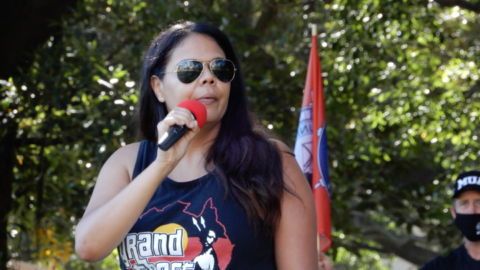
FISTT has organised the Abolish the Monarchy protest in the Sydney CBD on 22 September, which coincides with the official day of mourning called by Albanese in relation to Queen Elizabeth II.
Lynda, why is it necessary to protest? Why not just ignore what’s happening?
FISTT has organised a protest on that day in response to the mass propaganda being sprouted by the media and the Albanese government to glorify the Crown.
For First Nations, the Crown represents invasion, our dispossession and the ongoing colonisation of our lands and communities.
We can’t ignore what’s happening in relation to the Queen because the legacy of British imperialism still impacts us to this day through the construct known as Australia.
There’s been a huge outpouring of sentiment over the death of Elizabeth II. Along with the public holiday, parliaments have closed for 15 days.
How is this demonstration of reverence for the Queen impacting First Nations communities?
What we have seen is a complete silencing of First Nations voices and an expectation for us to show remorse to the head of an institution, who during her reign, refused to act upon the harms caused by her predecessors.
And more importantly, she upheld the same values of racial inequity by enabling these harms to continue.
A lot of talk has been circulating about the legacy of the longest reigning British Monarch. We’ve also heard about how she “served” her subjects for 70 years.
How do you consider the legacy of the Queen?
The legacy of the Queen is one which many First Nations communities within Commonwealth territories feel a deep anger and pain from.
Whilst her reign is being celebrated publicly with a demonstration of power, privilege and wealth, there is a real normalisation of privilege, which she inherited through the theft of land and resources, warfare and the attempted genocide of First Nations and other minorities throughout the world.
The Albanese government has prioritised improving relations between the Australian state and First Nations. This is reflected in the proposed referendum for the Voice to Parliament.
Is what’s currently occurring in the country following the death of the Queen at odds with this other priority?
The prime minister used his first speech to address the Uluru Statement and the Voice to Parliament, which is completely at odds with the current circus surrounding the monarchy.
How can a leader commit to a process of truth-telling and voice, whilst expecting First Nations to remain silent on the death of the Queen?
There is a clear contradiction and expectation for the oppressed to show compassion to the leader of an institution which has nearly destroyed all that we hold sacred – our land, our children, our families, and our culture.
Since 1938, First Nations have protested on 26 January, which was declared our Day of Mourning.
The Albanese government has demonstrated how easy it is to declare a new public holiday, but our people have not been afforded the same respect and dignity in our own country.
The leader of the federal government is demonstrating to us exactly how the power dynamics of the Indigenous-settler relationship will be sustained irrespective of a voice to parliament.
How do you consider the Indigenous Voice to Parliament proposal?
The Voice to Parliament proposal serves to benefit government and industries which benefit from stolen land and our continued dispossession.
The proposal is an advisory body model, which lacks any substantive power to provide self-determination or to provide decision-making about the issues which impact our communities.
The Voice to Parliament has scope to influence and advise parliament.
However, like many in the First Nations community, we know governments will do what is in their best self-interest and will largely ignore calls to produce long-term tangible outcomes based on justice principles, such as giving us our land back.
And lastly, Lynda, Thursday’s rally is more broadly calling for the abolition of the monarchy. Can you speak on what this would entail?
It is absurd that in 2022 this country is still headed up by a foreign power. FISTT is calling for the abolition of the monarchy and backs calls for Australia to progress towards a republic and more importantly, a nation-to-nation treaty with First Nations.
We argue that our sovereignty has never been ceded and, under the regime of the colonial project, our people are held political captives within the legal and judicial system of those who have invaded our shores and attempted to wipe us out.
I think we need to be clear too – the call for the abolition of the monarchy is a call to abolish settler colonialism and white supremacy.
It is time for Australia to construct and adopt a new identity and culture, one which is not predicated on racial hierarchy and stolen land but values the diverse cultures which now call the place of our ancestors’ home.
Australia can only deem itself a legitimate nation-state unless the issue of First Nations sovereignty is addressed and more importantly realised.


